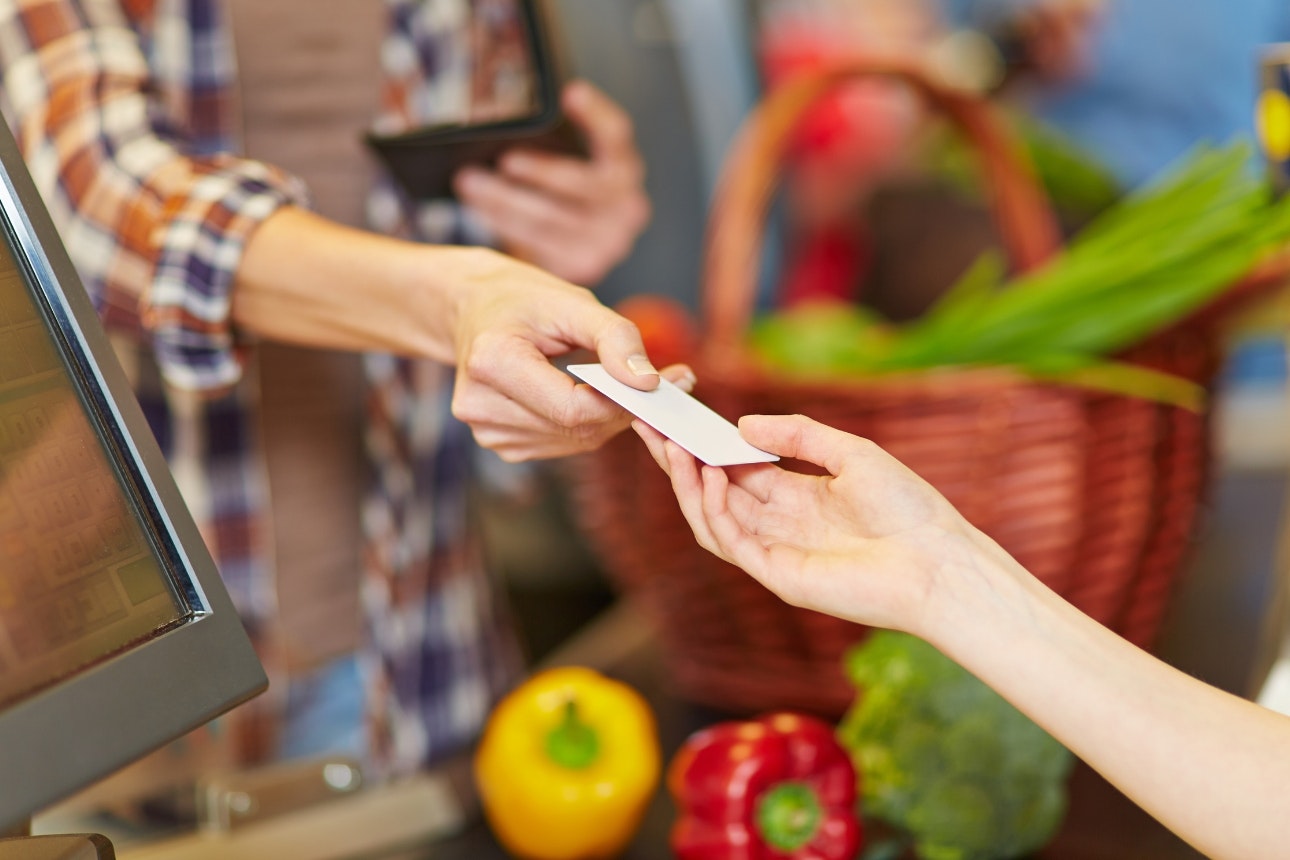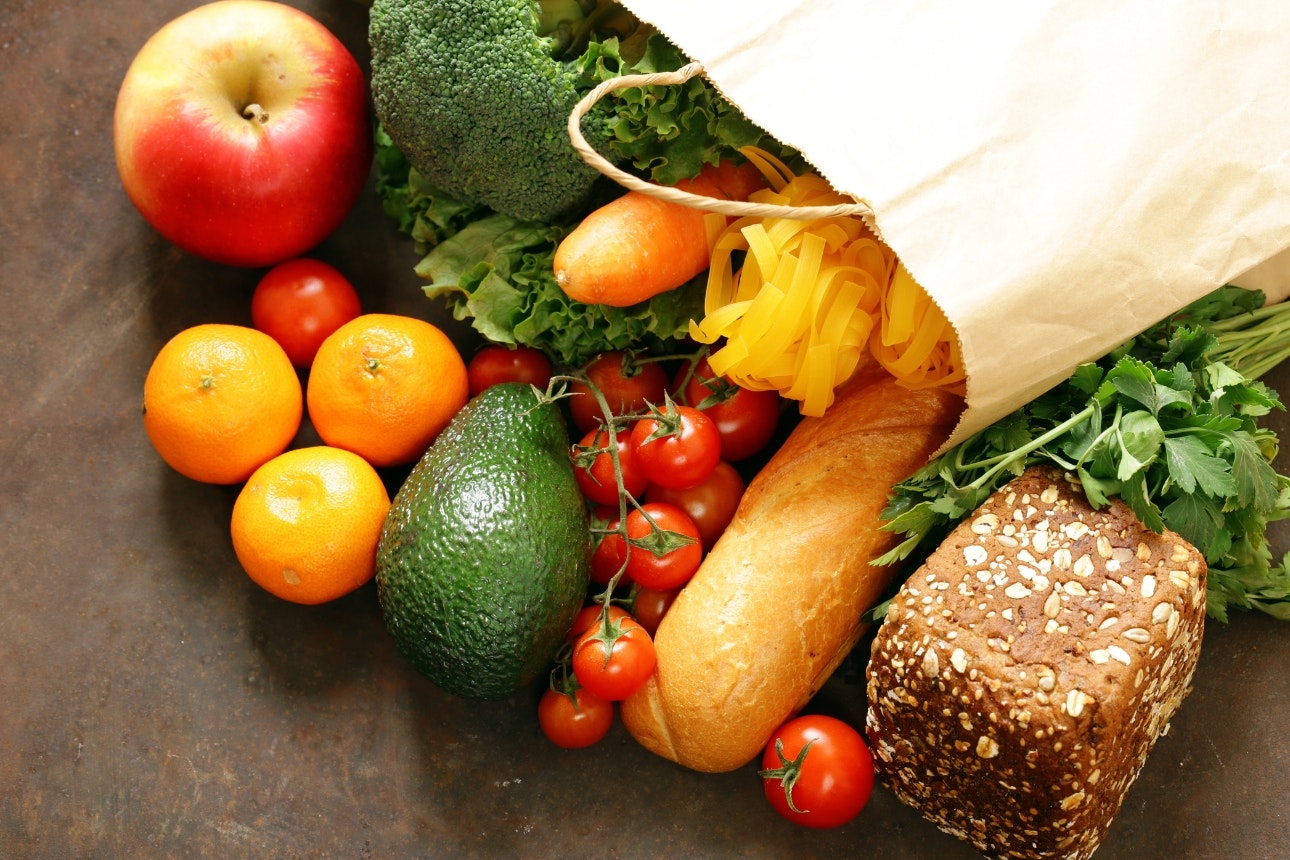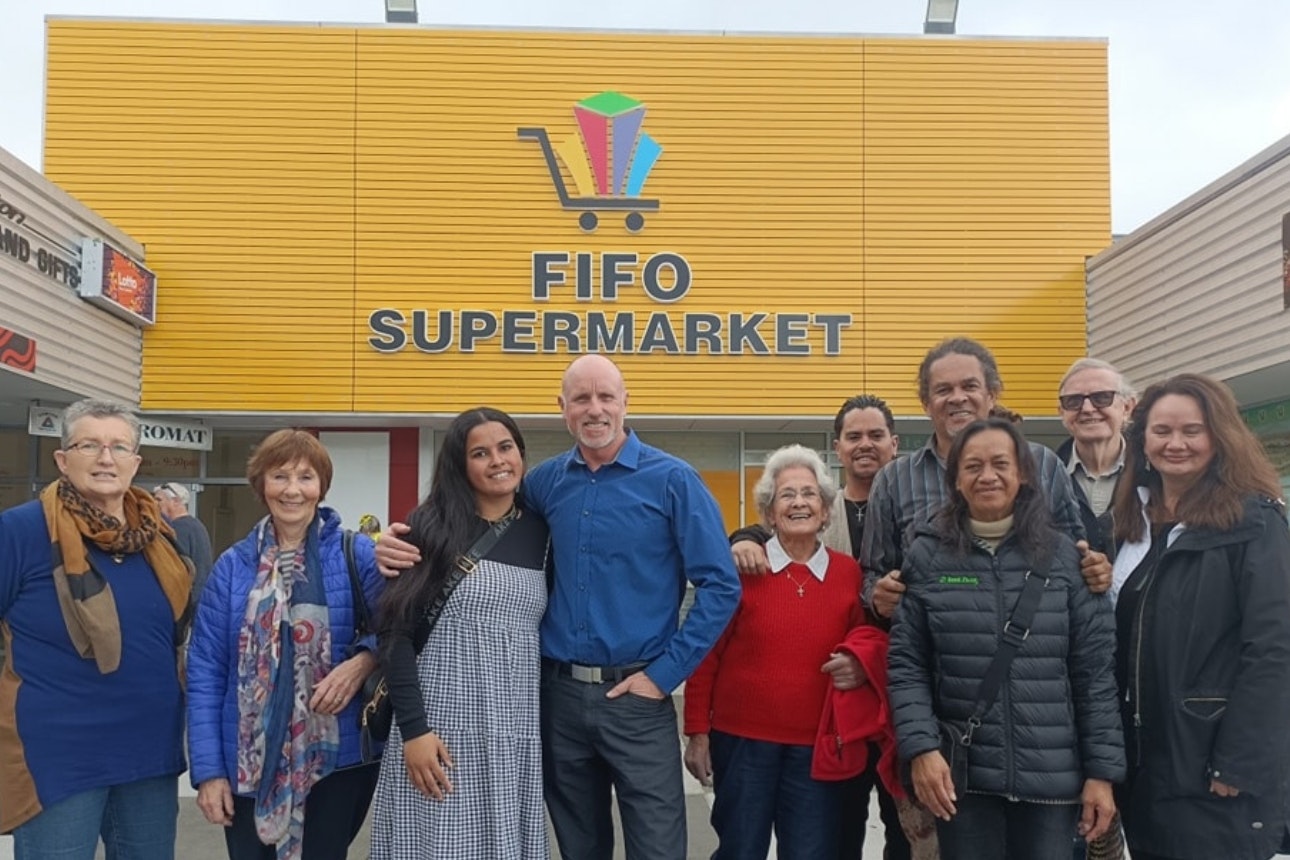
By Chris Schulz
Investigative Journalist | Kaipūrongo Whakatewhatewha
On a recent Monday, the Albany branch of the Pak’nSave supermarket chain offered what seemed to be a great deal: purchase 2 1L Pams almond milks and you’d pay just $4.
That’s $2 each – with a regular price of $2.79, that’s a saving of 79c on each carton.
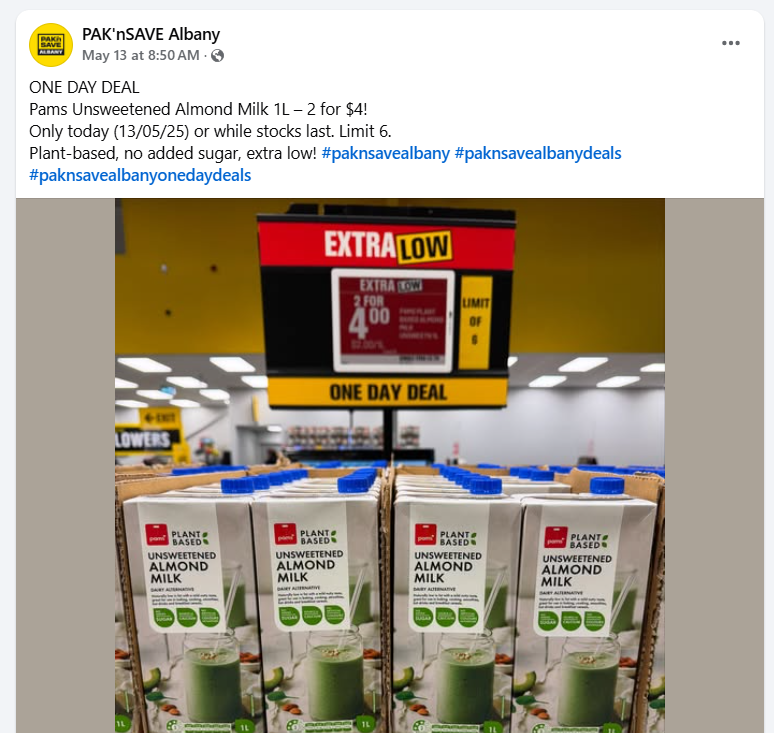
My kids like making smoothies, so I popped 12 cartons in my online basket and smiled at the $24 price tag. I added a few more items into my basket, then closed my laptop, intending to return over the following days to finish my shopping and submit my order, which I did on the following Wednesday.
On Thursday, when I picked up my groceries, I was surprised to find I'd been charged full price for those almond milks: at $2.79 each, they cost me $33.48 instead of $24 – an increase of 40%.
The deal hadn't gone through because I hadn’t confirmed my order on the same day as the deal. I was forced to pay full price, not the special that had lured me into buying 12 of them. Why?
A new tier of supermarket specials
Pak’nSave already offers two tiers of supermarket specials: “Everyday low” prices in black and “extra low” prices in red.
On its website, the supermarket explains that everyday low prices “remain at a consistently low price,”, while extra low prices are a “reduced promotional price for a short period of time”.
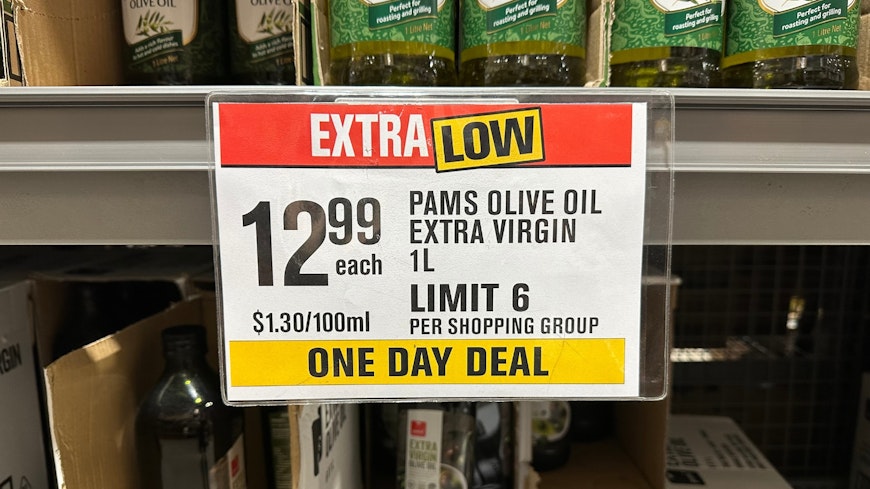
But Pak’nSave’s Albany branch – and others – has introduced a third tier of savings it calls “one-day deals” for products that are on special for just a single day.
Recent one-day deals have included 375-g jars of Pams peanut butter (for 99¢), Pams tinned tomatoes (three for $2) and Pams extra virgin olive oil ($12.99 a litre).
These one-day deals are promoted to in-store shoppers via yellow signs, but online, it’s a different story. There, the one-day deals aren’t advertised as such. Instead, they’re tagged with the red “extra low” price tag.
This means that, if you’re not totally switched on and just put them into your online basket, like I did, their ‘special’ status can very easily disappear, and they will revert to their full price if you don’t submit your order on that day.
“We just can’t control this”
I approached Pak’nSave Albany to ask them why I’d been charged full price for my almond milk when I’d only added it to my basket because of the 2-for-$4 deal.
A spokesperson for the supermarket apologised for “any issues here” but said: “Adding items to the online cart, sadly, is not going to price hold anything as the data is stored in your browser, and the system doesn't capture your cart info until you place the order.”
A subsequent query placed with Foodstuffs’ media team revealed that even placing an order doesn’t necessarily mean the extra-low, one-day deal will stay that way. If a customer later alters their order, all one-day deals revert to the original price, unless the items are on special again.
That spokesperson explained: “If a customer makes changes to their order after a promotion has ended, the updated pricing will reflect the prices at the time of the modification, not the original promotional price.”
They also confirmed “Our online pricing is determined at the time of transaction – not when items are added to the basket. This means that if a promotional price has expired by the time an order is finalised, the current pricing will apply.”
New World, another supermarket chain owned by Foodstuffs, alerts customers to price changes in their baskets with the following message: “Please note: pricing and origin of some products may have changed since you placed your order.”
Consumer asked why customers aren’t notified when prices for items placed in their basket have changed. The Pak’nSave Albany spokesperson apologised and repeated: “The data for an online cart is mostly held on your side in your device’s memory, so we just can't control this.”
Why our grocery sector is so problematic
A recent Consumer investigation tracking prices on 22 products across all major supermarkets found some specials weren’t delivering the savings supermarkets seem so keen to convince us of.
For that investigation, a marketing expert told us specials can lure consumers into spending more, with any indication of a price reduction able to grab shoppers’ attention in a retail environment.
Under the Fair Trading Act, pricing needs to be clear and unambiguous. Consumer believes customers should be fully informed about how long specials will last so customers can make an informed decision when buying groceries online.
We also believe shoppers should be fully notified if changes are made to prices at any time after items have been added to an online grocery basket, and again that changing an online order could result in price changes for any items in their basket.
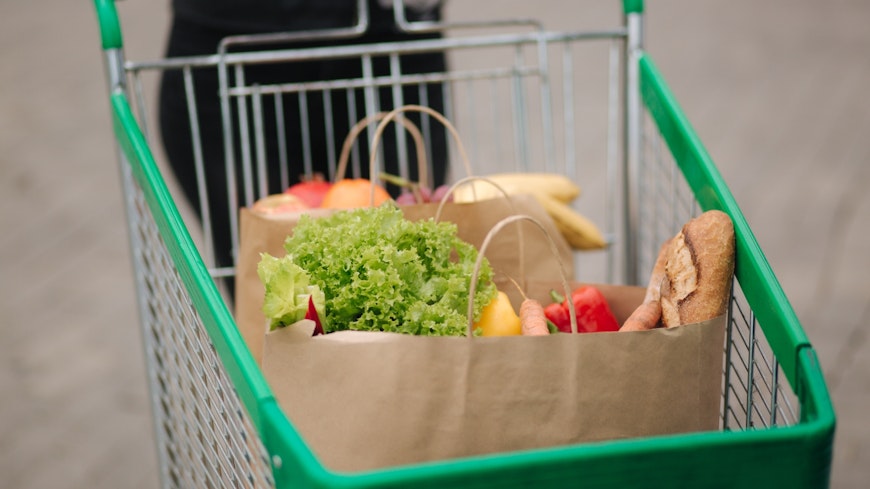
Consumer’s sentiment tracker shows that, since June 2021, no industry in New Zealand has seen levels of trust fall as far as those of our supermarkets.
A grocery commissioner is overseeing the industry. Several supermarkets have been hit with criminal charges over misleading pricing or specials, but consumers still aren’t feeling any relief at the checkout. In May, Stats NZ reported supermarket prices rising another 3.7% in the 12 months to April.
The commissioner’s first annual grocery report, a review of the sector following the market study, validated consumers’ concerns. It revealed that the grocery sector has seen no meaningful improvement, and the two major supermarket chains continue to control 82% of the market.
“We are at a crucial point where more must be done to tackle the structural and systemic issues in our supermarket sector,” said Consumer NZ chief executive Jon Duffy.
Lodge your complaints about supermarket specials
If you think you’ve spotted dodgy or misleading specials at your supermarket, complain to your supermarket and ask it to put them right.
You can also submit your complaints to us at our online campaign.
If you feel you’ve been misled, you can make a complaint to the Commerce Commission.
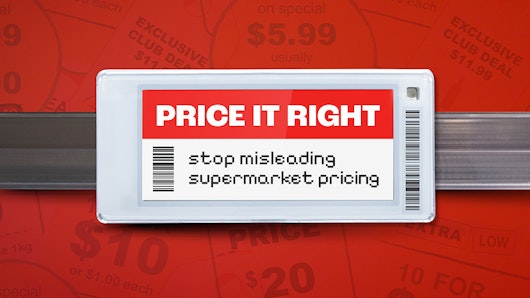
Make supermarkets price it right
Find out about our campaign to tell the government we need clear rules, stronger penalties and automatic compensation for shoppers.
